International academics converged on Waiheke this month to unravel the mysteries of companies, examining their legal, operational and historical dimensions in an event hosted by the Business School.
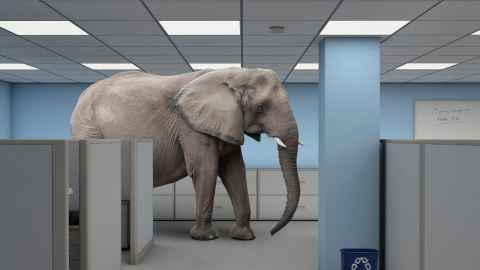
The enigmatic nature of companies and corporations often stands as a colossal 'elephant in the room.' To demystify this giant, a workshop aptly titled 'The Elephant in the Room: Disciplinary Perspectives on the Corporation' took place this month.
Drawing inspiration from the parable of the blind men and the elephant, the workshop aimed to illuminate the multifaceted perspectives of corporations through diverse lenses.
University of Auckland Business School Dean Professor Susan Watson, who was co-hosting the event, spearheaded the discussions with an analysis of historical views and competing conceptions of a company.
"Is the company the property of shareholders or, as an artificial legal person, does it own its own assets because it's a separate legal entity? This question has been a fundamental one in our discipline," said Watson, author of The Making of the Modern Company. "What we conceive the company to be determines how we interact in and around it, and how we make decisions about it."
Although the Companies Act 1993 says the company is a separate legal entity from its shareholders, the law, said Watson, sometimes behaves as if it were comprised of its shareholders.
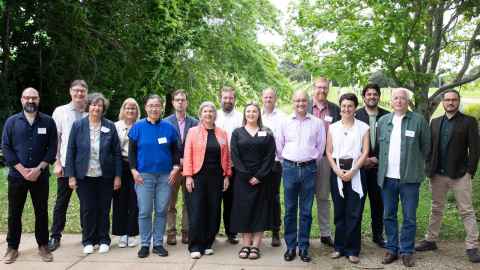
University of Edinburgh academic Jonny Hardman said the nature of a separate legal personality is a perennial debate in corporate law. In his recent research, he argues that separate legal personality is best seen as a two-step process: a concession from the state to something real.
"Viewing separate legal personality as a two-step process lets us explore whether the concession of separate legal personality is operating as it should."
Timothy Peters, associate professor of law from the University of the Sunshine Coast, discussed the potential relevance of political theology for thinking about the modern corporation and the legitimacy of corporate power.
"What's at the centre of corporate action is an absent presence; the corporation, which is not reducible to any of the individuals that make it up and yet which guides and authorises the actions of those deemed to be acting as the corporation.
"The continual performance of this absent presence - the absence of an actual corporate entity that is, at the same time, present in the actions and representations of individuals acting on its behalf is, I argue, the liturgical mystery at the centre of corporate law."
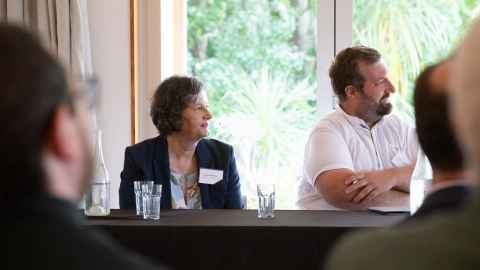
Another Australia-based academic, Tim Bowley, a member of the Centre for Commercial Law and Regulatory Studies at Melbourne's Monash University, said shareholders should be prime contenders for the 'elephant in the room' prize due to the influence they exert over the body of rules, norms and practices that we tend to collectively call corporate governance.
Later, Lynne Taylor, Professor at the University of Canterbury's School of Law, shared her knowledge on the primary legislation regulating New Zealand business corporations, the Companies Act 1993.
She discussed whether the Act reflects the reality of the nature of the corporations and individuals it primarily regulates and detailed the creditor protections that are currently in place. She referenced the recent Mainzeal collapse, in which creditors were left out of pocket due to the failures of the company directors, who were made to pay $40 million plus interest for reckless trading.
Dr Lynn Buckley (University of Auckland postdoctoral fellow and co-host of the conference) dove into the value and drawbacks of stakeholder theory and how stakeholder definitions have changed over time. She covered American philosopher and professor R. Edward Freeman's theory, which suggests that shareholders are merely one of many stakeholders in a company and that a company's real success lies in satisfying all its stakeholders, not just those who might profit from its stock.
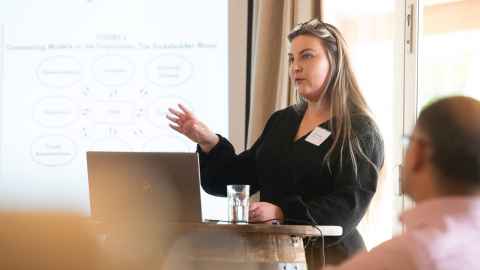
Later, University of Auckland management and international business senior lecturers Dr Billie Lythberg and Dr Jamie Newth discussed post-colonial perspectives and possibilities, including te ao Māori concepts and how they can apply to the company. They highlighted the Māori theory of value manahau, which combines mana (power, authority, and dignity) and hau (vitality of people, places, and objects) and how it can apply to companies and ways of operating.
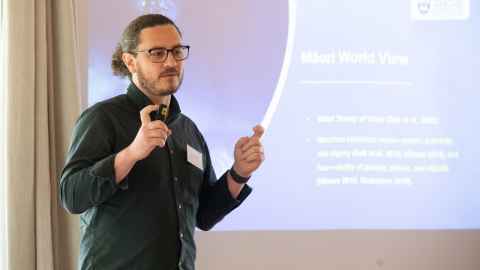
The perspective of multinational corporations, including history, organisational structures, adaptability, the different actors involved and previous theories on the operations of multinationals, was discussed by Professor Snejina Michailova (Associate Dean Research, Management and International Business, University of Auckland).
Meanwhile, institutional economics, management and economic perspectives on the corporation were shared by senior law lecturer Dr Steve Kourabas (University of Monash), Professor Kenneth Husted (University of Auckland) and Professor Prasanna Gai (University of Auckland).
Professor Gai used hypothetical examples to discuss the benefits of, and issues with, contracts and residual control rights through acquisition, saying that the same norms that enhance productivity within a firm can cause costs at the firm boundary.
In an international setting, he explored scenarios in which firms should offshore or re-shore their activities and how 'cultural distance' (and shading) can influence outcomes.
Finally, the circular economy and the ways in which firms can adopt circular principles, such as changes to existing governance forms, organisational processes and practices were detailed by Professor Husted.






